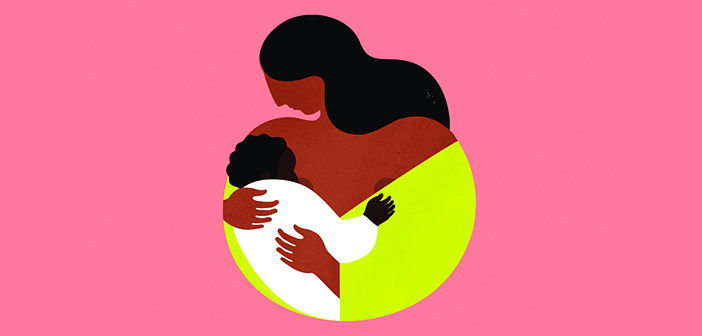A med student works to overcome barriers to breastfeeding.
Infants need to eat around the clock for their growth, health, and bonding with their parent. However, due to disparities rooted in structural racism, all parents do not receive equal guidance on breastfeeding—and some are pushed to use formula instead.
Since September 2022, Bintou Diarra ’23 MD’27 has been involved with Mama Glow, a maternity wellness company, and the Mama Glow Foundation, a nonprofit that promotes reproductive health equity and justice for Black women through community advocacy, educational programs, research, and scholarship. Diarra has led Mama Glow’s editorial blog and helped research and develop a course for the foundation, called the First Food Justice Breastfeeding Certification Program.
There are “various players that inform how people are eating and living from the very beginning, and [this knowledge]unlocks an entire new world because you think about maternal and infant health from more of a large-scale perspective,” Diarra says. “You don’t even think about how there are these structural underpinnings from when babies are born.”
Adds Leona Hariharan, Mama Glow’s programs and partnerships coordinator, “The goal of the program was to address the historical disparities in breastfeeding rates in marginalized communities, specifically Black communities,” which have consistently been pushed toward formula feeding through aggressive marketing.
For decades, companies have targeted African nations and women of color in the US with formula advertisements, thereby promoting formula feeding in areas that otherwise received limited information and assistance with breastfeeding. The disparities are further rooted in slavery, when enslaved women were expected to breastfeed slave owners’ children but not their own, Diarra and Hariharan say.
So far, the foundation has trained more than 100 doulas in the First Food Justice program. The course teaches students how structural racism has impacted the likelihood of breastfeeding and offers guidance on how to breastfeed or assist with this process, Diarra says.
The course is an avenue for teaching “structural competency … and understanding that sometimes we might not understand, and we are different … and we don’t understand each other’s lived experiences, but you can understand the ways things impact me and vice versa,” says Diarra, who helped conduct research and prepare the curriculum.
Participants had access to program modules, handbooks, and tools to support their learning. Diarra helped create the Mama Glow Foundation Mental Health Pocket Guide, which won a 2024 Silver Anthem Award.
“Having young voices like [Diarra’s] influencing the program development also ensures that we have people who are immersed in academia bringing this headspace to the program development, and I think it’s important for our community to have access,” says Latham Thomas, the founder of the Mama Glow Foundation.
Diarra’s undergraduate studies in medical anthropology, as well as the opportunity to observe elder family members in Ivory Coast helping with the birthing process, nurtured her interests in health disparities, including those in Black motherhood. She trained with Mama Glow as a doula, to provide additional help during labor.
Diarra has been “a tremendous force in program development with us and was able to work on the first foods justice program … and it’s wonderful to work with medical students. I really believe in mentorship and supporting the next generation of folks who will really change our medical system,” Thomas says.
“No matter what I do [in medicine], I want to bring my passion for maternal health through it,” Diarra says. Across medical specialties, she adds, motherhood “is impacted in so many ways.”




